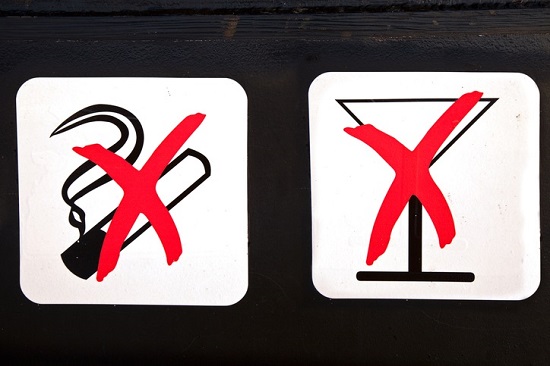Legislators attempting to control what, how much, and how often physicians can prescribe opioid medications to their patients is misdirected. (I have read articles in the past few days on legislators doing so in Virginia, Maine, California, New Jersey and wrote this editorial in opposition: Say No to Laws That Prescribe.)
If legislators truly want to cut costs due to substance misuse, really think limiting supply works, and really think laws control behavior, shouldn’t they first legislate how many cigarettes and drinks each individual American can have per week? After all, tobacco misuse and alcohol misuse each cost our nation more than the misuse of all illegal drugs – including opioids – combined.
Or is the attempt to legislate control of the supply of opioid medications based on other factors? A nod to the hysteria over the latest drug panic? Disdain for people who use illegal substances rather than legal ones? Contempt for people who have problems because they can’t “hold” their substances like people who can “hold their drinks”? Continued belief, despite the data presented most recently in the Surgeon General’s report, that addiction is a moral problem, not a medical one, and that limiting supply will induce choice – exactly what the science says is no longer present for people with substance use disorders?
I would like to ask legislators to be really clear about their motivations with regard to alcohol and drug legislation and about whether even common sense predicts the likelihood that the means they propose will achieve desired ends. I would ask them to double check their scientific understanding of addiction, and to do a cost vs. benefit analysis on individual rights with every piece of drug legislation they consider.
Further, I would ask legislators to examine their logic with regard to controlling how any medications for substance use disorder are prescribed, beyond the fact that most are professionally unqualified to do so.
One in 7 Americans is expected to develop substance use disorder. One in 6 Americans with substance use disorder experienced trauma in their lives. One in 6 American men and 5 in 10 American women have experienced trauma at least once in their lives. The supply to control isn’t substances but access to help. Legislating mental health evaluations for all Americans for signs of trauma and correlated substance misuse makes more sense than legislating control of the substances that ease their anguish.
Disclosure and disclaimer: The opinions expressed here are mine alone and do not necessarily reflect the positions of my employers, co-workers, family members or friends. This content is for informational purposes only and is not a substitute for medical or professional advice. Consult a qualified health care professional for personalized medical and professional advice.

